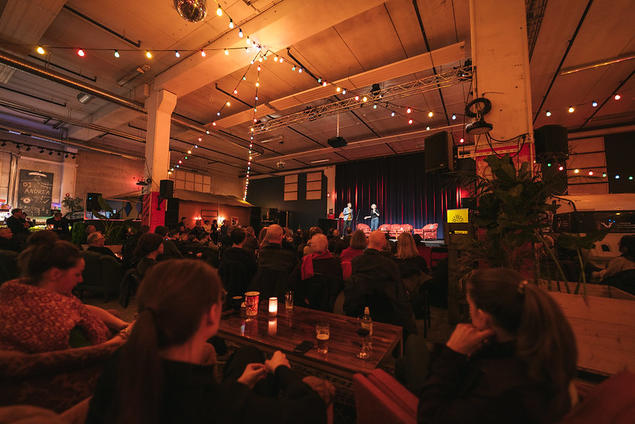Timely FNI presence at Arctic Frontiers
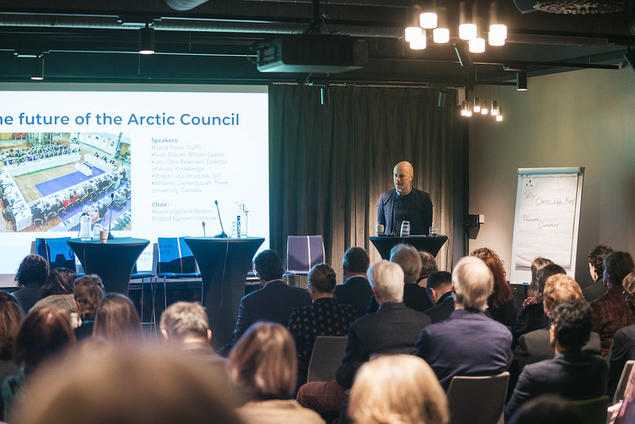
The Arctic Frontiers conference draws researchers, politicians, officials, business and local people across national borders in the Arctic. FNI was well represented at this year’s conference in Tromsø, where current issues concerning the future of Svalbard and the Arctic Council were discussed, as were local consequences of the geopolitical situation in the North.
At the Arctic Frontiers conference, FNI researcher Svein Vigeland Rottem chaired a panel on the future of Svalbard. Norway focuses on showing a clear presence there, not least to accentuate that it is Norway that governs Svalbard. Mining has been a central cornerstone for the local community, but, with the last coal mines now closing, other business opportunities must be found for the archipelago. Research, tourism, and satellite work have become important industries, but the average length of stay for those who come to Svalbard is decreasing.
Risky business
Christian Skottun is head of Telenor Svalbard and of the Svalbard Business Association. ‘In 2009, people stayed on Svalbard for an average of six years. Now the average is down to four years’, said Skottum, who was keen to create ownership and good living conditions.
He stressed that business players must have predictability as regards regulations. ‘With a very limited market that needs regulation, we must be highly aware of the opportunities we have’, he said, urging the authorities not to change the framework conditions overnight.
‘If you are to bring real money into this kind of market, you cannot have changes all the time. This is a question of big investments with extremely high risks’, Skottun warned.
More sustainable
Sustainability was a significant theme in the debate. Terje Aunevik, chairman of the Svalbard Business Association, holds that it is possible to run businesses in the Arctic without leaving undesirable traces. ‘The main challenge for sustainable development on Svalbard is global climate change, not the people living on Svalbard’, he stated.
In the audience was Bo Andersen, former head of the Norwegian Space Centre, which has been actively involved developing infrastructure on Svalbard. Andersen did not concur that business can be run sustainably on Svalbard, but agreed that it is possible to practise greater sustainability than is the case today.
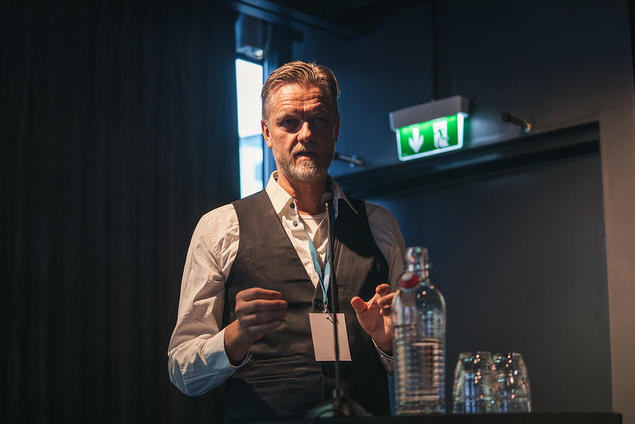
From coal to renewables
A new energy plan for the local community is underway. Morten Hald , chair of the University Centre on Svalbard (UNIS) and professor of geology at the University of Tromsø, envisions a new line of jobs within the field of renewable energy and Arctic security.
Arild Olsen is chairperson of the Longyearbyen local council, and a former employee and board member of Store Norsk Spitsbergen Kulkompani on Svalbard. ‘I see numerous opportunities for sustainable industry and business – and they are not necessarily new’, he said, indicating satellites, research, and tourism.
Grete K. Hovelsrud, professor at Nordlandsforskning, highlighted the need for knowledge-based development. Lotte Lindbjør of UN Global Compact Norway expressed concern about what will happen now that companies must increasingly take vulnerability risks into account.
The security situation
Svein Vigeland Rottem from FNI spoke of the ‘elephant in the room’: how the Russian war against Ukraine affects the Arctic and the international community on Svalbard.
‘It is a Norwegian political goal to have better control over Svalbard’, said Grete Hovelsrud from Nordlandsforskning. ‘The people who live on Svalbard are used to the Russian presence there, but after the war started, something happened also at the local level: the Russians living on Svalbard are no longer included, even in this small place’. Photo: Else Welde, UiT.
‘Some potential Svalbard investors are sitting on the fence because of the geopolitical situation,’ added Christian Skottun in Telenor.
The future of the Arctic Council
There is usually a sizable Russian contingent at the Arctic Frontiers – but not this year. However, talks on cooperation and security in the North continued, and Svein Vigeland Rottem assembled a prominent panel of experts to discuss the future of the Arctic Council, the most important international body for cooperation in the North.
Interest in this event was great, with approximately 130 participants. The event was duly covered by High North News.
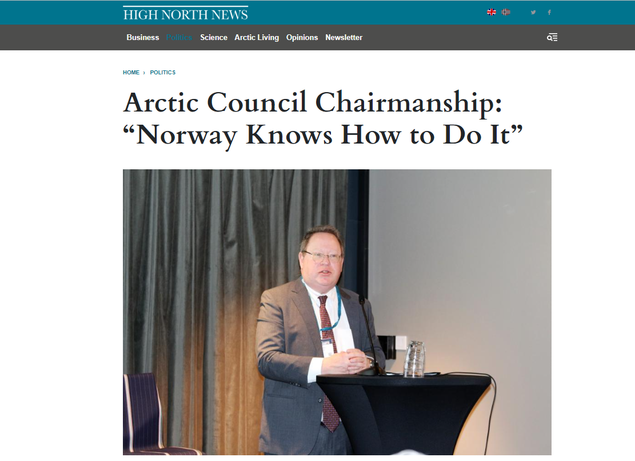
In this connection, Rottem spoke about the Arctic Council on The Guardian's podcast Science Weekly and on the Norwegian NRK’s Nyhetsmorgen.
International and local
On Tuesday, high-level activities commenced on the main stage. FNI researcher Andreas Raspotnik was one of the central hosts, together with former BBC journalist Susannah Streeter.
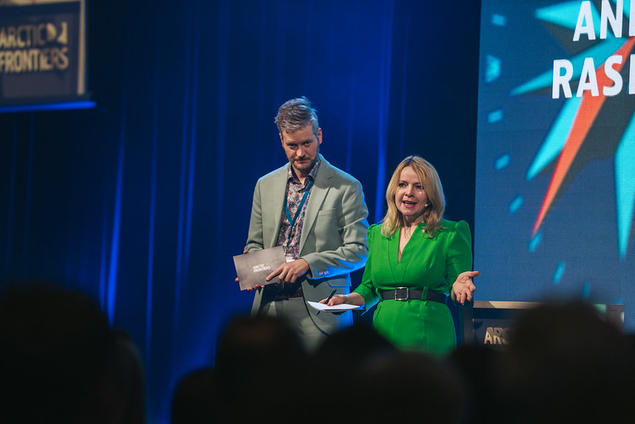
Several Nordic foreign ministers joined the conference on Tuesday. Norwegian Minister of Foreign Affairs Anniken Huitfeldt, explained that Norway is working intensively on preparations for the transfer of the Arctic Council chairmanship from Russia to Norway in May.
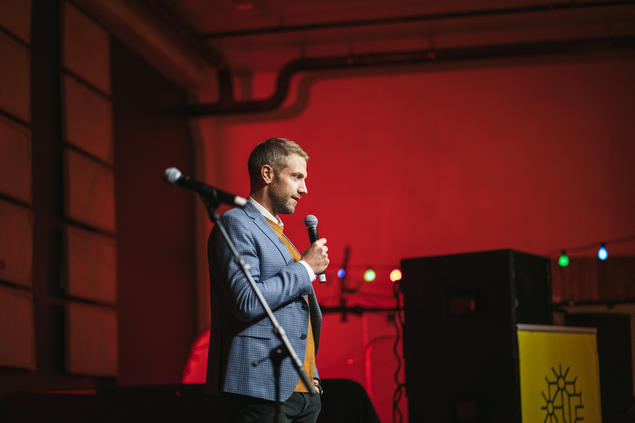
On Wednesday evening, FNI co-organized a side-event on Arctic geopolitics and local consequences, jointly with Troms and Finnmark County Municipality. Together with Professor Gunnhild Gjørv at UiT, FNI researcher Andreas Østhagen opened the talks, and then several Arctic mayors spoke on local perspectives on the current geopolitical situation.
